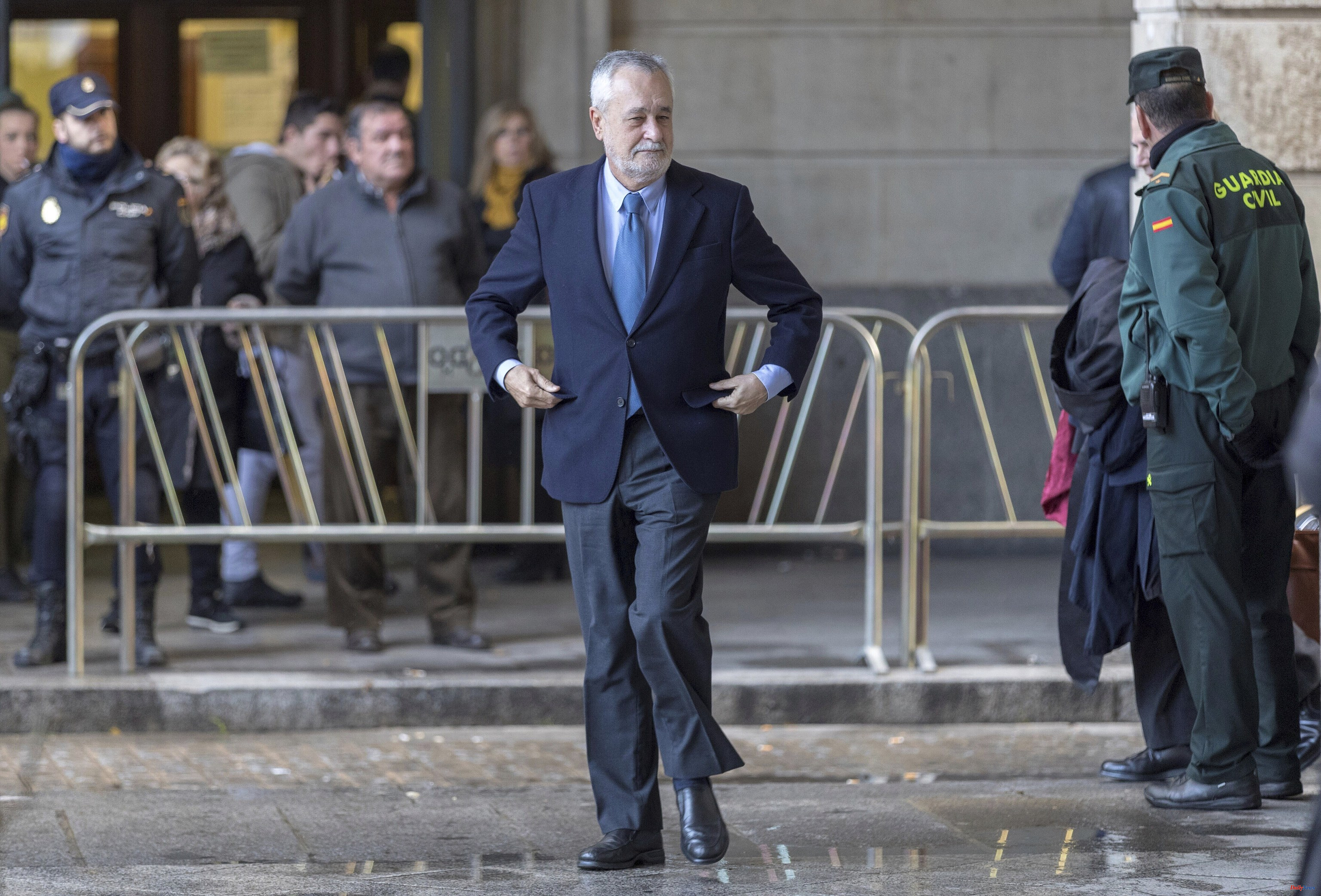The Supreme Court has rejected this Wednesday the annulment incidents presented by eleven of those convicted in the ERE case and thus clears the way for these defendants to appeal to the Constitutional Court, including former president of the Junta de Andalucía José Antonio Griñán .
In an order, the Criminal Chamber considers that it did not incur in any violation of fundamental rights in the conviction for the former high officials of the Junta de Andalucía for the fraud of the ERE, through which they diverted for a decade 700 million euros from public coffers. The resolution has the particular votes of the magistrates Ana Ferrer and Susana Polo, who were previously opposed to sentencing Griñán and three other defendants for the crime of embezzlement of public funds.
Along with the former Andalusian socialist president, who was sentenced to six years in prison for prevarication and embezzlement, the Supreme Court also sentenced former Vice President Gaspar Zarrías, former Andalusian Employment Councilors Antonio Fernández and José Antonio Viera, and former Innovation Councilor Francisco Vallejo , to the former Minister of Finance Carmen Martínez Aguayo together with other former senior officials of the Junta de Andalucía.
However, neither former Andalusian president Manuel Chaves nor former minister Magdalena Álvarez requested the annulment of the conviction.
Regarding Griñán, the Second Chamber denies in its order that it is a sentence where the right to the presumption of innocence has been violated, to a process with all the guarantees or effective judicial protection, among others. The magistrates recall that "there are a good number of passages in the sentence, referring specifically to the former Andalusian president, in which reference is made to the fact that, knowing the illegality of the process and despite the aforementioned reports, he did not change his behavior, for Therefore, the allegation that it acted in accordance with the recommendations of the Intervention is irrelevant in the terms in which it has been raised".
On the other hand, the Supreme Court maintains that the early publication of the judgment ruling last July "did not imply any illegitimate interference with the right to honor or personal dignity of the convicted" contrary to what was stated by the appellants.
The inadmissibility of the incident of annulment of the sentence opens the way for José Antonio Griñán and ten others convicted in the ERE case to appeal to the Constitutional Court requesting that their sentences be annulled.
In the case of the former Andalusian president, the sentence has not yet been carried out -he has not entered prison despite being a final ruling- as he is ill with cancer and the Anti-Corruption Prosecutor has requested more medical reports on his state of health.
According to the criteria of The Trust Project












